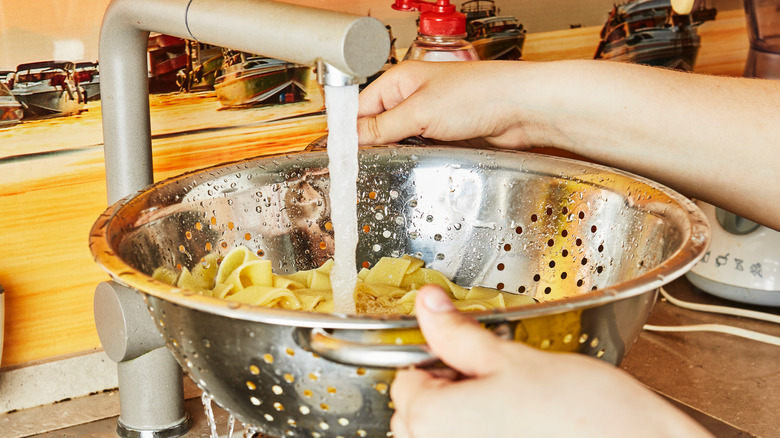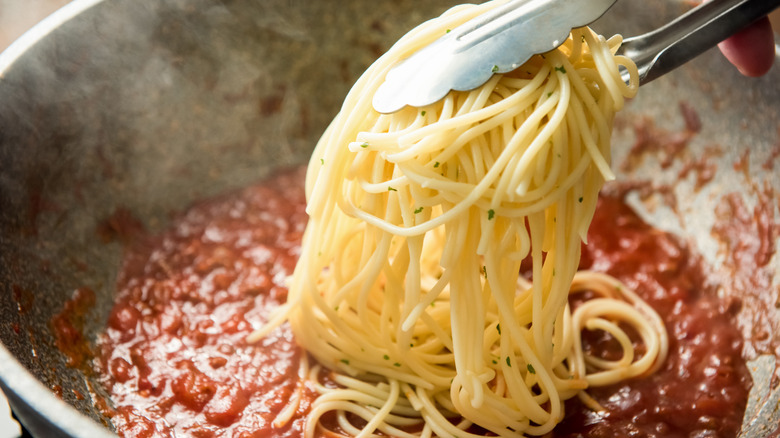Why It's A Mistake To Rinse Cooked Pasta
Although it comes down to personal preferences, marrying the right pasta shape to the proper sugo or sauce will achieve restaurant-quality pasta dishes. With hundreds of different pasta shapes, each is created to deliver the right amount of sauce in each delicious bite.
According to Eataly, pasta can be divided into five categories, tubular, twisted, long, stuffed, and small-shaped. Tubular pasta like rigatoni has hollow centers designed to catch goodies in the sauce. Match the pasta's size with the chunky ingredients in the sauce to snag diced pancetta or sautéed carrots in each forkful. Twisted pasta like fusilli has nooks and crannies created to soak up and catch the sauce, and it is well suited for oily sauces like pesto. Spaghetti and thicker varieties like tagliatelle fall into the long category. Thinner types like angel hair are best served with light cream sauces, while thicker noodles can handle heartier sauces like short rib ragù. Stuffed pasta like ravioli is often filled with cheese but may also contain meat and veggies and is traditionally tossed with butter. And small-shaped pasta is primarily used for soups.
While boiling pasta is a seemingly easy thing to do, there are cooking techniques that distinguish a mediocre bowl of spaghetti from the best cacio e pepe you've ever had. Referred to as liquid gold, pasta water is at the center of many of those techniques, including when to rinse your cooked pasta and when it should be considered a crime.
Never rinse your pasta (most of the time)
"Do Not Rinse" is the bold warning given by the Italian food experts at Delallo and generations of Italian nonnas. Pasta dishes served warm should 'never, ever be rinsed' since the starches in the water help the pasta adhere to and absorb the sauce. The only exceptions to this rule are when you make pasta salad or stir-fry noodles, per package directions. Rinsing the pasta will stop the cooking process and drain away the starchy film, which can clump up if you serve the dish later.
Rinsing cooked pasta is equivalent to adding oil to the boiling water, another no-no outlined by Barilla. While some mistakingly put oil in pasta, thinking it will keep the pasta from sticking together, it creates a slippery surface on the pasta that keeps the sauce from adhering to it. Salt should be the only thing you add to boiling pasta water. To finish any hot pasta dish properly, follow Rachael Ray's instructions on Instagram and undercook your pasta for a few minutes before adding it directly to the sauce. Finish cooking the pasta for two minutes in the sauce, using tongs to coat the pasta and up to a cup of pasta water to marry everything together. The starchy pasta water will adjust the consistency of the sauce, thinning it out, if necessary, or emulsifying thinner sauces to get a glossy, richer, perfect al dente pasta dish.

